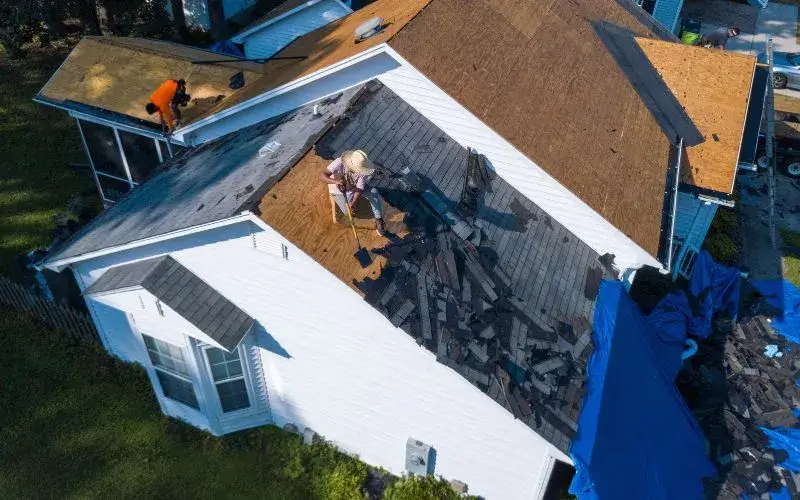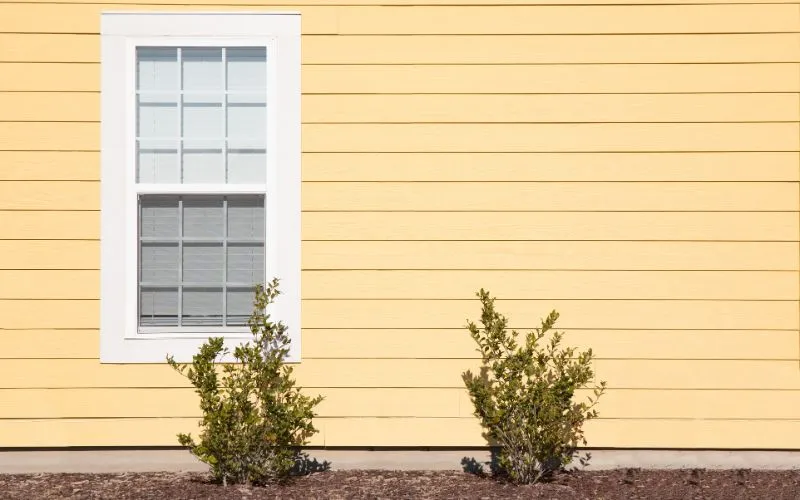8 Alternatives to Vinyl Siding Options: Boost Curb Appeal & Value
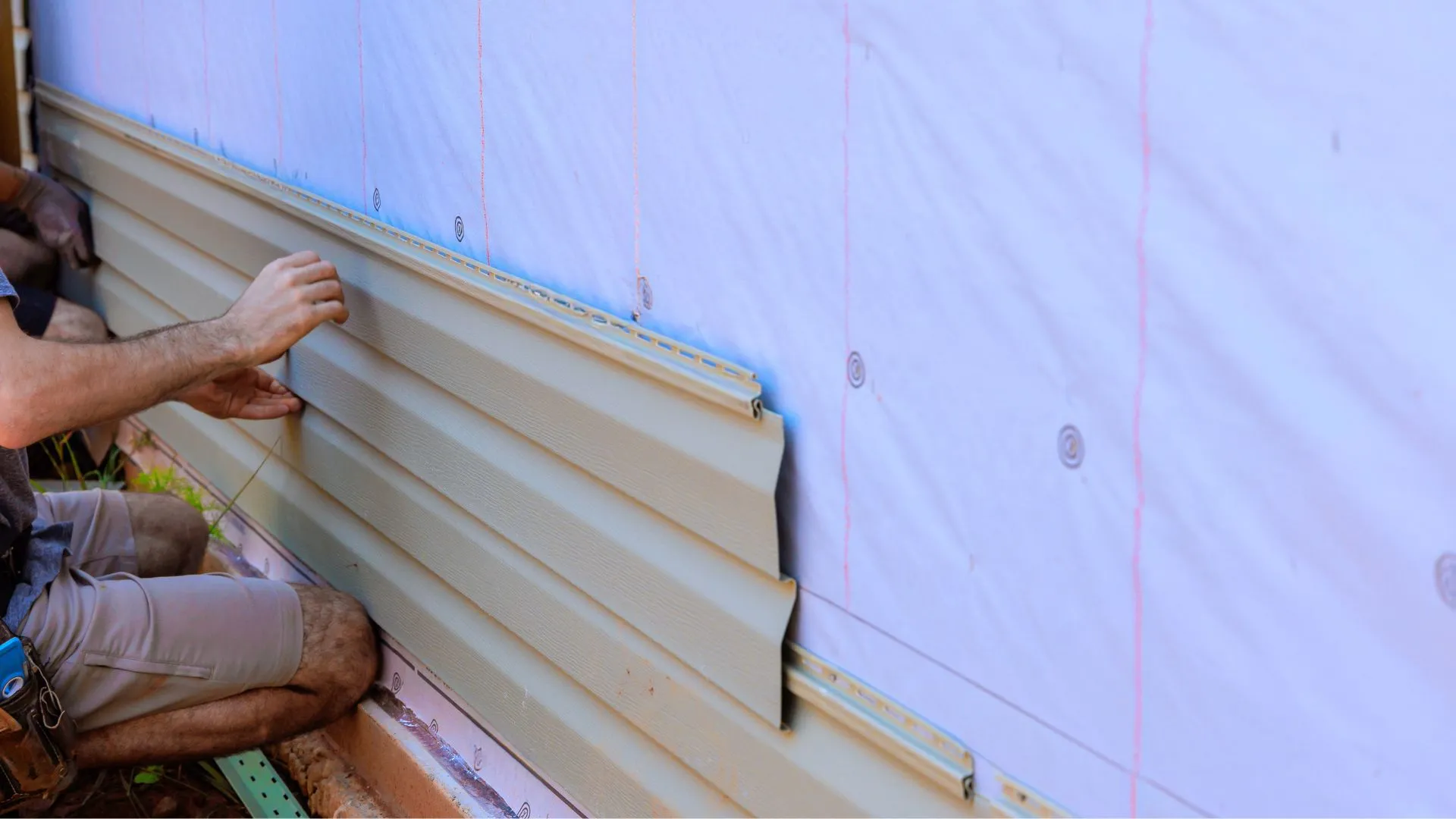
Vinyl is a cost-effective and long-lasting house siding material, however, it often loses its luster over the years. Vinyl is known for fading, losing color, and its poor defense against the elements. If you're tired and want something better, then you should try some of the best alternatives to vinyl siding.
We've collected the 8 best vinyl siding alternatives from 20 different siding options. When you've made your choice, give us a quick call and we'll give you an affordable estimate for the replacement. We're one of the best siding companies in Illinois and we value your time and trust.
8 Alternatives to Vinyl Siding Explained
We chose the 8 best alternatives to vinyl siding primarily based on their endurance, cost-effectiveness, curb appeal, and weather resistance. Here's a quick overview of all the siding options that we chose:
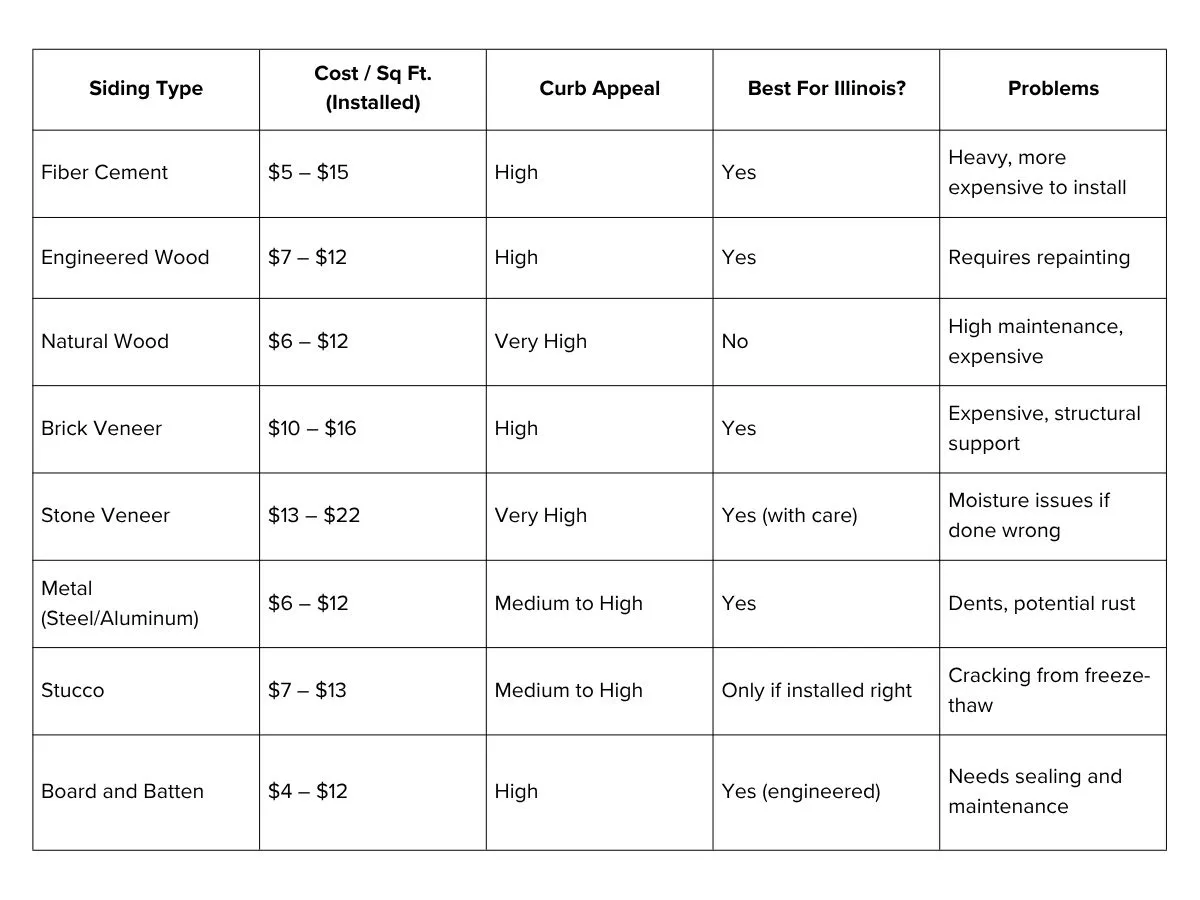
1. Fiber Cement Siding (James Hardie Board)
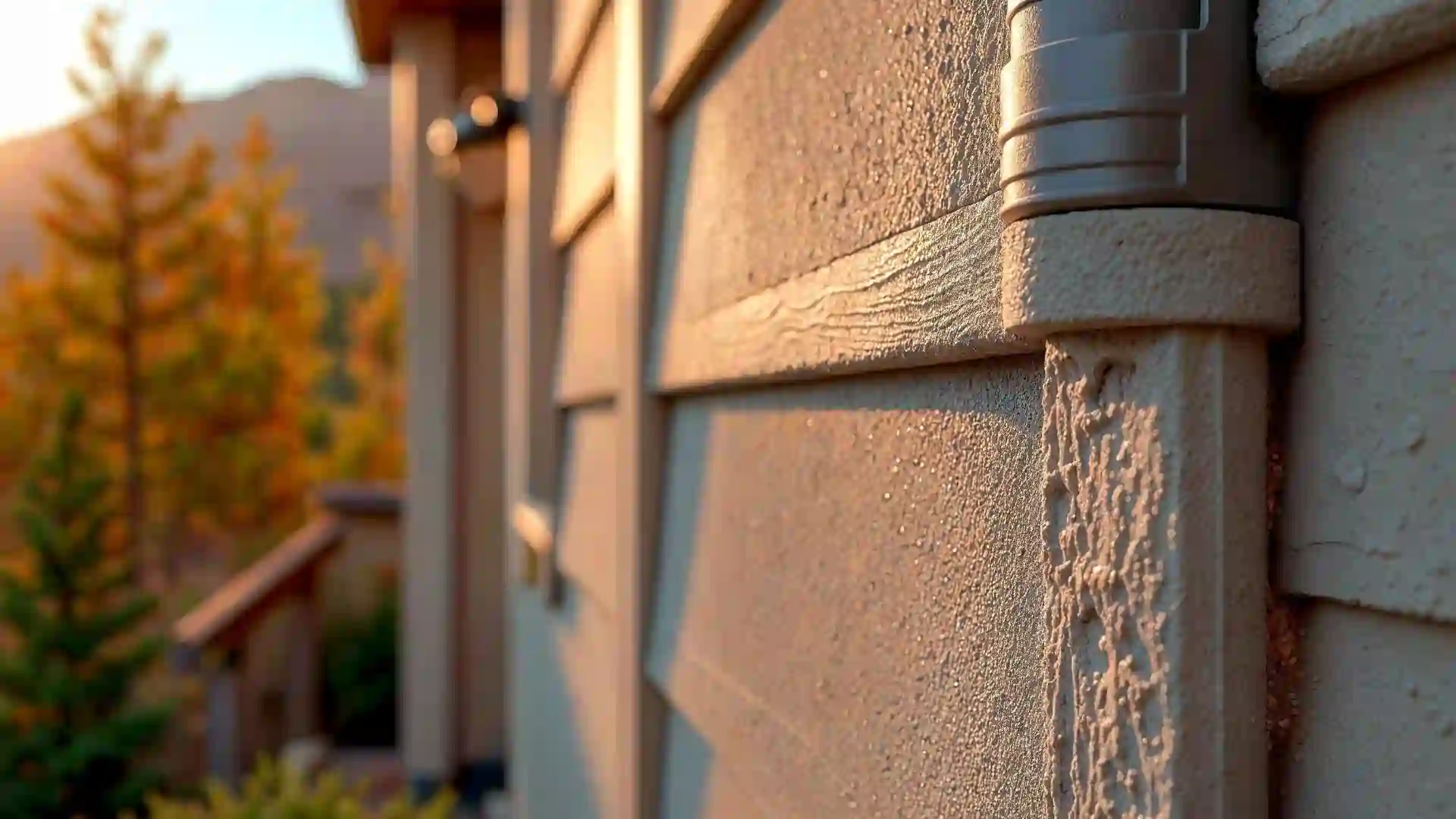
Fiber cement (also known as Hardie Board) is a versatile, durable, and lightweight material that is often used as siding for residential houses across the US. It's the foremost alternative to Vinyl because fiber cement is only slightly more expensive, but offers four times as much durability, appeal, and fire resistance.
Fiber cement boards do not fade or warp like Vinyl which makes it a prime choice for states like Illinois, Texas, Florida, and Virginia. The superb weather resistance and affordability make it a great option for every household.
Pros of Fiber Cement Siding
- Extremely durable and fire-resistant
- Withstands cold, wind, and moisture well (great for Illinois)
- Low maintenance
- Pest-resistant
Cons of Fiber Cement Siding
- More expensive than vinyl
- Heavy and requires professional installation
- Can crack if not installed properly
2. Engineered Wood Siding (LP SmartSide)
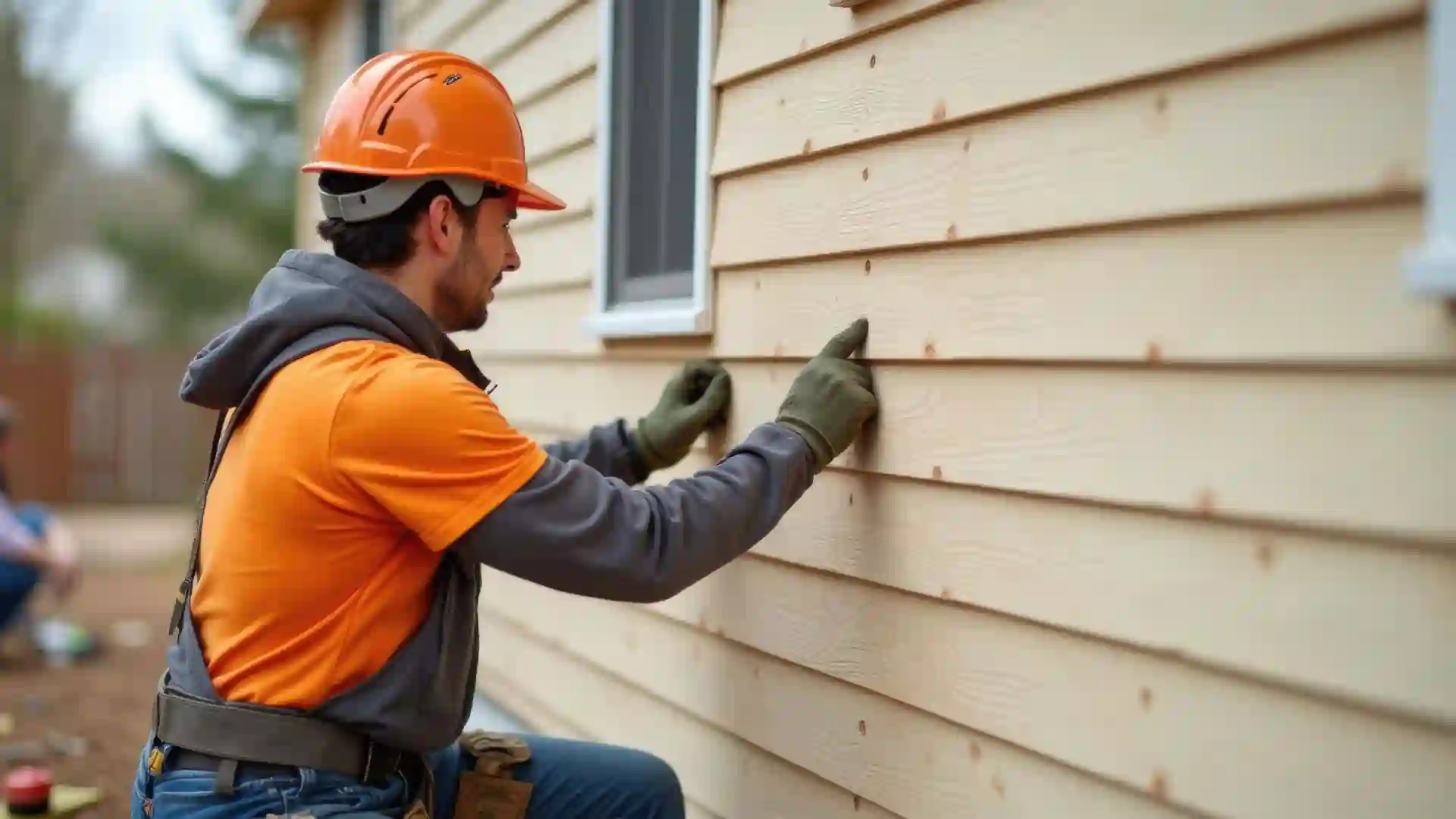
We'll always choose engineered wood over natural wood because the former provides great durability and the same aesthetic. Engineered wood is modified to give you the best perks of different types of wood. For example, they have great rot and weather resistance compared to Vinyl and natural wood.
Engineered wood is also more durable than Vinyl, which gives it great long-term value. On the downside, engineered wood costs 1.2 to 1.8 times more per square foot compared to Vinyl siding. If you've got some moolah saved for your house, you should definitely consider engineered wood.
Pros of Engineered Wood Siding
- Lighter than fiber cement
- Look of real wood at a lower cost
- Resistant to termites and fungus
- Easier to install
Cons of Engineered Wood Siding
- Requires repainting after 5 to 10 years
- Not as fire-resistant as fiber cement
- May not last as long in extremely wet conditions
3. Natural Wood Siding (Cedar, Redwood)
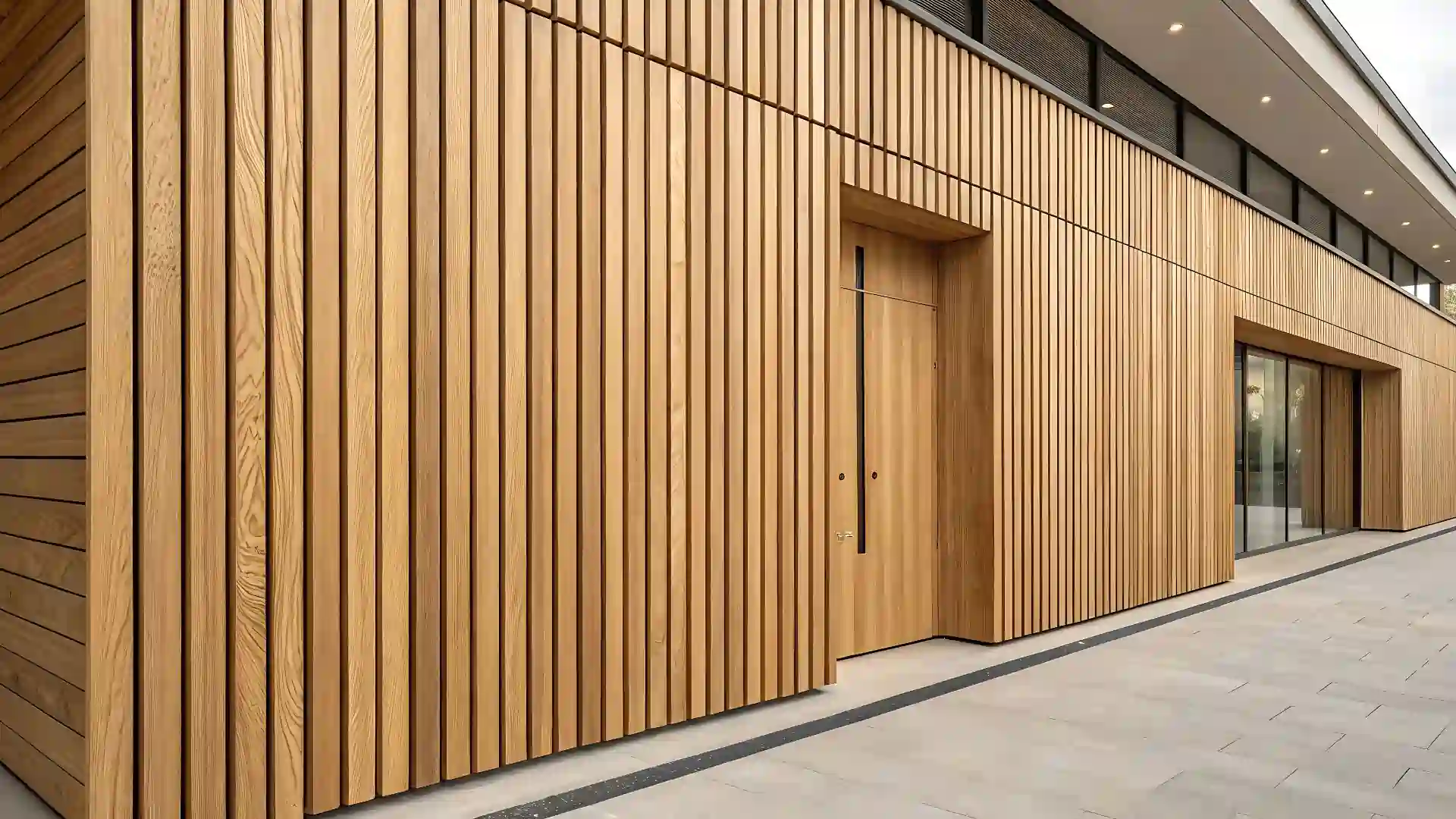
Wood siding gives your property a high curb appeal, especially in suburban areas. Now, before you jump the horse, there are multiple types of wood siding options. Each option has its benefits and disadvantages, that we highly recommend looking into. Our top picks will always be Cedar and Redwood because of their resilience.
Nevertheless, wood siding is a more attractive option for sub-urban homes because of its weather-resistant properties. On the downside, certain types of wood are prone to fire and rot compared to Vinyl. Overall, wood is an attractive alternative to Vinyl in specific use cases.
Pros of Natural Wood Siding
- Classic and timeless beauty
- Renewable and eco-friendly
- Can be stained or painted for a custom look
Cons of Natural Wood Siding
- High maintenance (sealing, staining every 3–5 years)
- Prone to moisture and rot in Illinois' humidity
- Expensive material and labor costs
4. Brick Veneer Siding
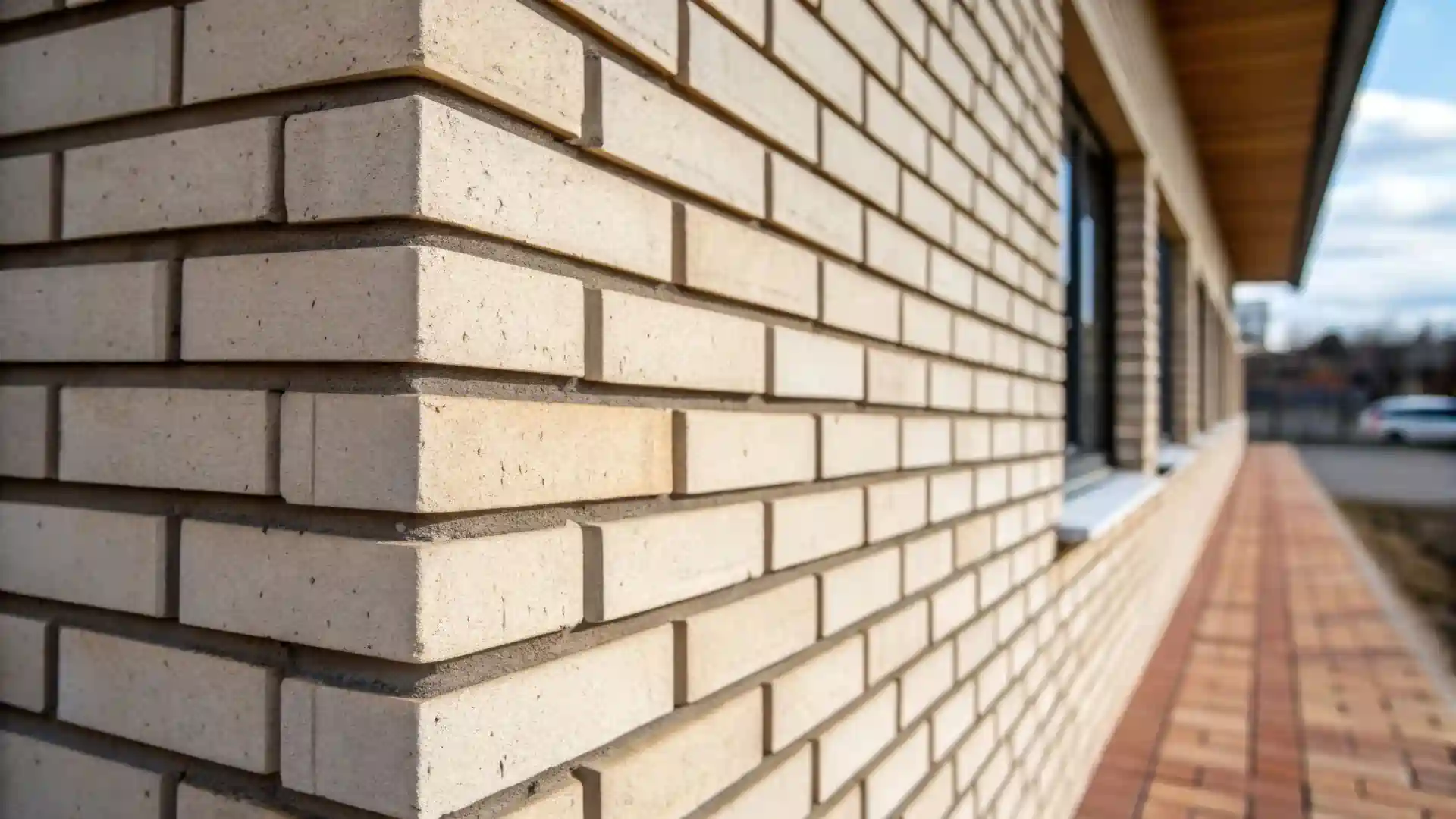
Brick veneers are one of the best types of siding for suburban, urban, and classic homes. These veneers look stunning and enhance the home's curb appeal. Brick veneer cladding also gives your house superior durability, energy efficiency, and weather resistance.
These remarkable veneers are a low-maintenance siding option because of their herculean durability. While it's easily one of the best siding options, it also comes attached with a steep price tag. Vinyl siding has a lower upfront installation cost which makes it within the reach of more households compared to brick veneers.
Pros of Brick Veneer Siding
- Excellent durability and weather resistance
- Fireproof and low-maintenance
- Improves home value and energy efficiency
Cons of Brick Veneer Siding
- Needs structural support because of the weight
- Expensive to install
- Limited color/style flexibility
5. Stone Veneer Siding (Manufactured Stone)
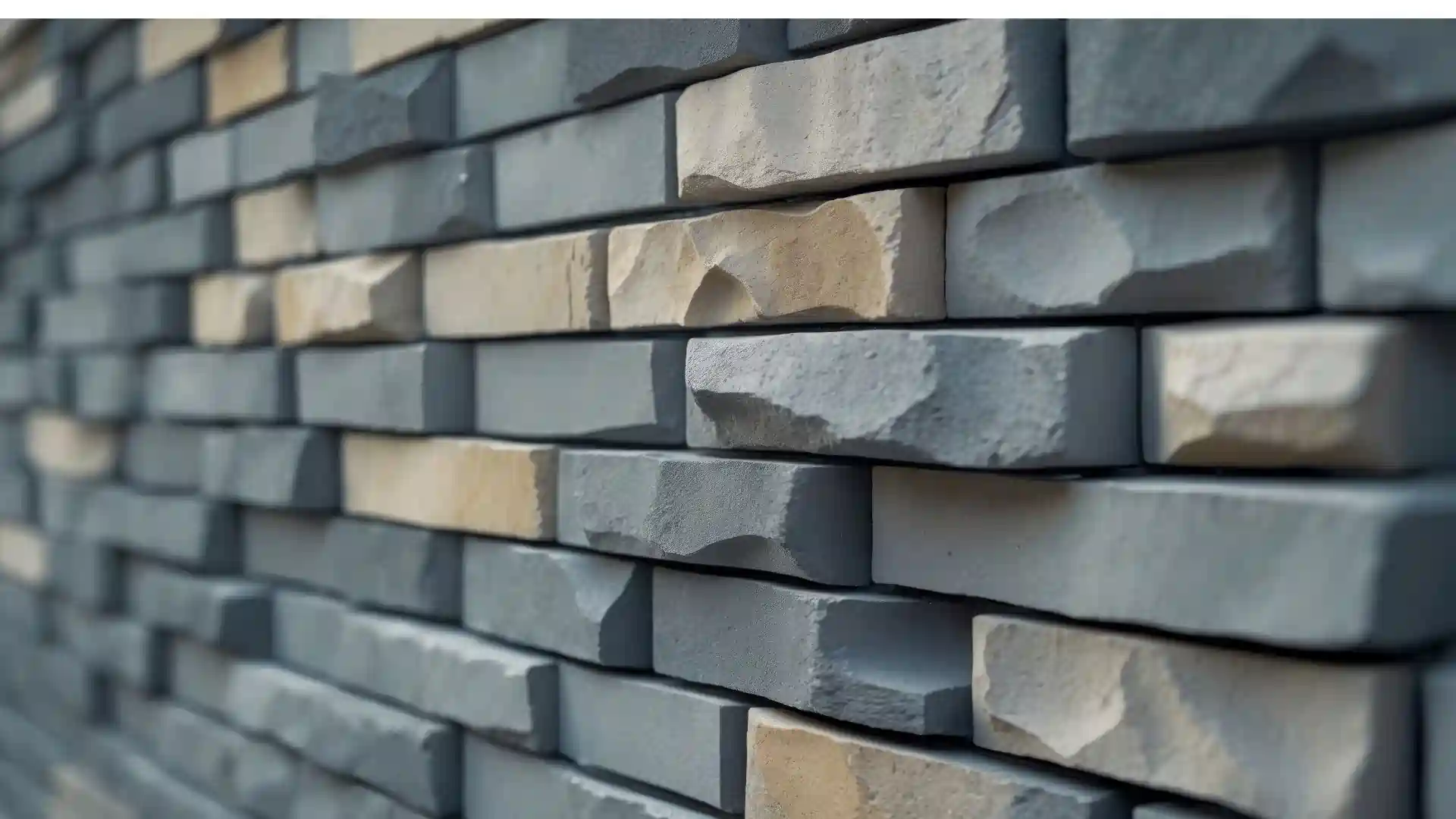
Manufactured stone veneers are made with Portland cement and Iron Oxide pigments, which gives them remarkable durability. These are arranged and installed in a way that offers maximum protection from rain, hail, and sweltering heat. These are great for areas prone to dry fires because they are fire-resistant.
Vinyl siding does not compare in any way to stone veneer siding. The only benefit that vinyl has is that it's cheaper to install compared to stone. Other than that, stone veneers offer better long-term value, comparable to brick siding veneers.
Pros of Stone Veneer Siding
- Lighter and cheaper than real stone
- High-end aesthetic and natural look
- Can withstand Illinois’ weather when installed properly
Cons of Stone Veneer Siding
- Stone veneer sidings are very expensive
- Can trap moisture without proper drainage
- Prone to cracking in freeze-thaw cycles without backing
6. Metal Siding (Steel or Aluminum)
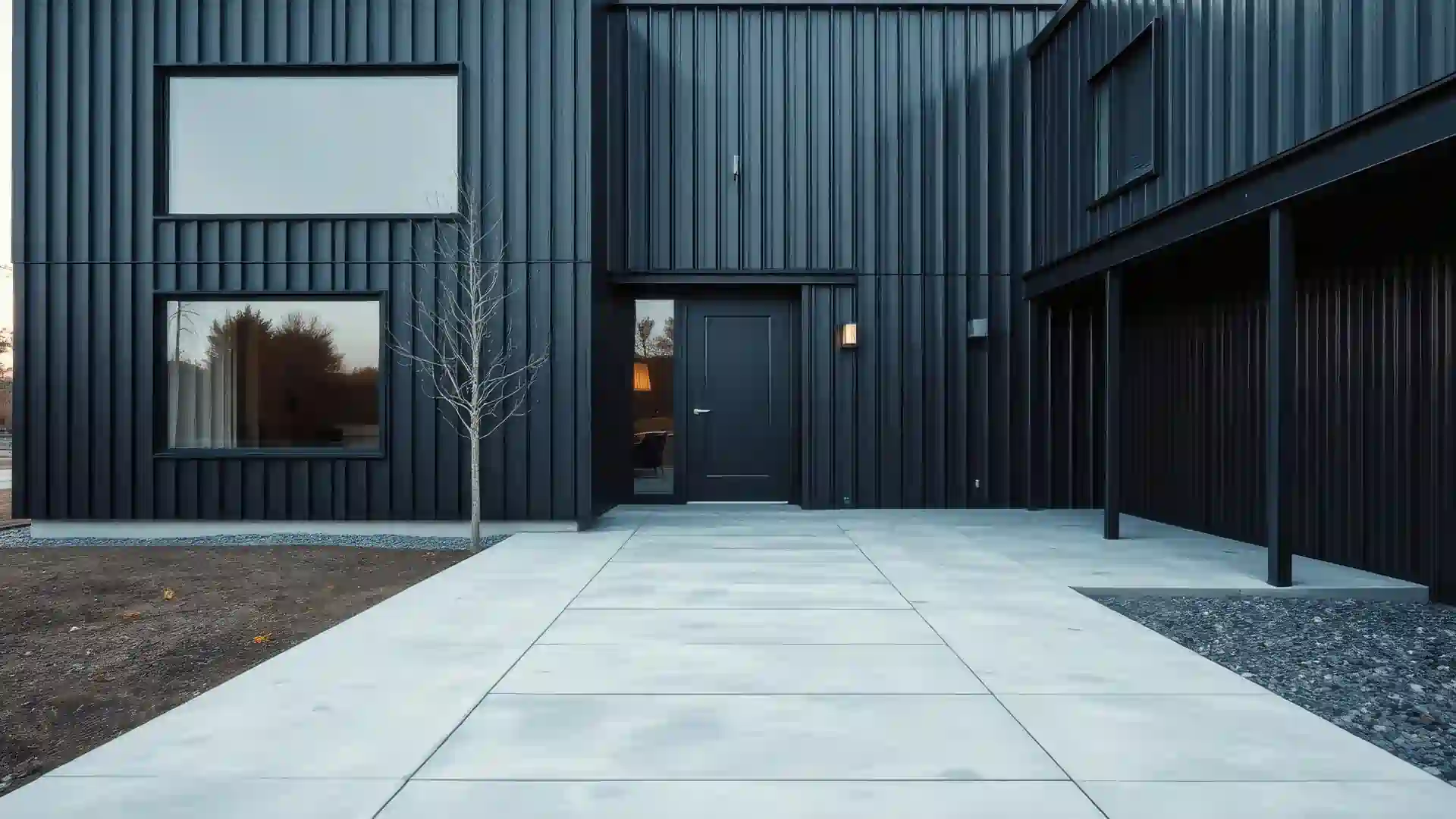
Metal, especially Aluminum and Steel siding are well-known for their fire, weather, and rot resistance. Coated aluminum and steel are also rust-resistant, which gives them a much longer lifespan compared to all other types of siding options.
Metal siding installed by an experienced siding contractor can last well over 40 years. Alternatively, metal exterior siding is more likely to dent and is noisy during rain or hail spells. Metal siding is also twice as expensive as vinyl, which makes it a far reach for most households.
Pros of Metal Siding
- Steel and Aluminum siding are fire-resistant
- Are completely pest-proof
- Can last 40 to 60+ years with proper installation
- Steel is very resistant to Illinois’ storms and hail
Cons of Metal Siding
- Can dent (especially aluminum)
- Steel may rust if not coated
- Noisy during rain/hail unless insulated well
7. Stucco Siding (Traditional or EIFS)
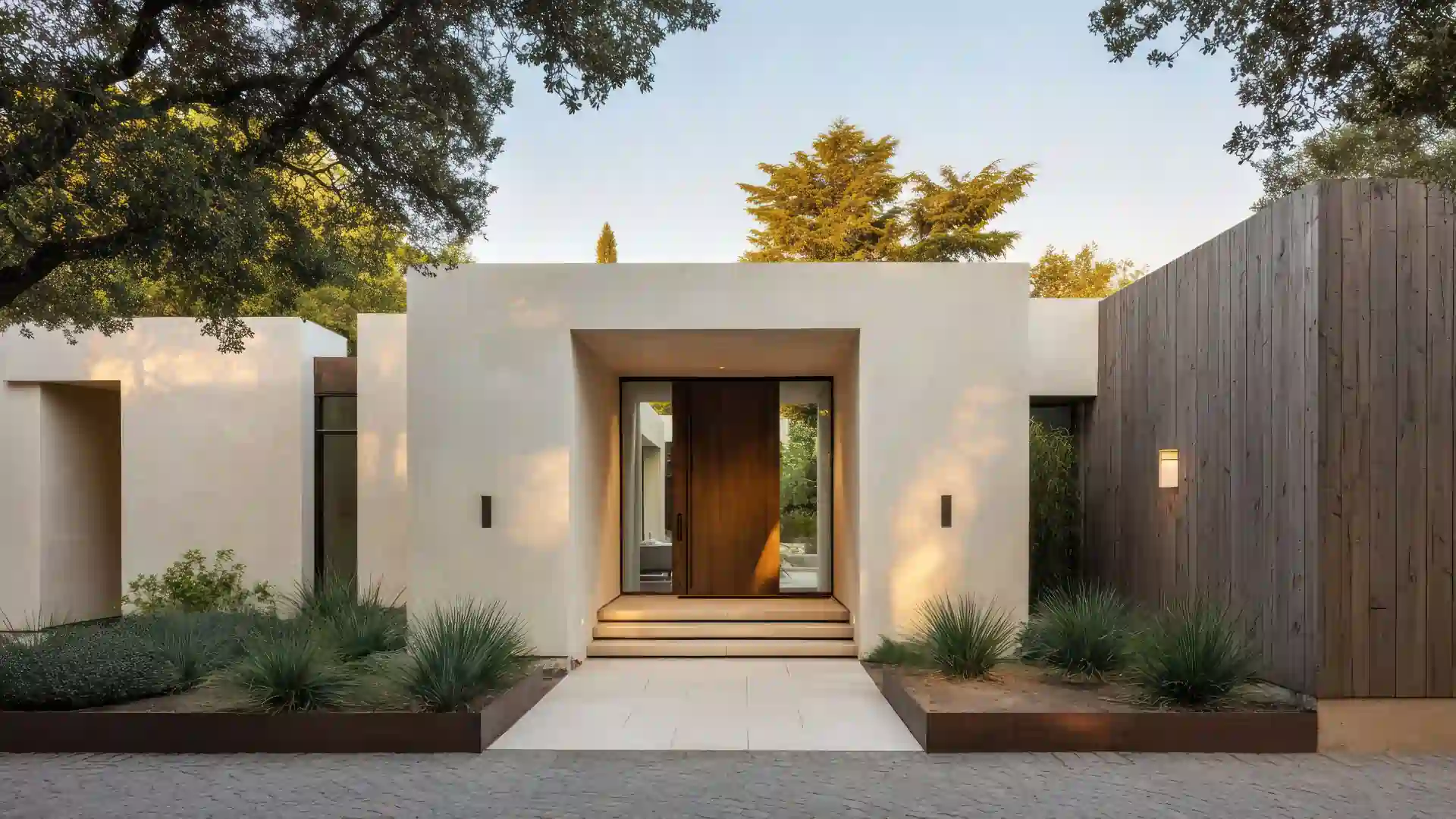
Properly installed stucco siding is a great way to battle ever-changing weather conditions in states like Illinois. Stucco is a great siding choice because of its fire resistance, durability, and absolute beauty. A well-installed stucco siding can add more than 30% to your property's resale value.
The only downsides of stucco are its high upfront cost and risks of cracking due to improper installation. Vinyl is a cheap siding option that doesn't last long but also doesn't break your wallet. Stucco siding is great but only for people who have money to spare.
Pros of Stucco Siding
- Energy efficient and durable
- Good sound insulation
- Can last long with proper sealing
Cons of Stucco Siding
- Not ideal for wet climates unless well-drained
- Prone to cracking in freeze-thaw cycles
- EIFS versions require special installation to avoid moisture issues
8. Board and Batten (Wood or Engineered Wood)
Board and Batten is one of the best wood siding options, but we believe it deserves a spot on this list. Its a wood siding variation known for its durability and resistance to harsh weather conditions. We recommend Board and Batten siding because it's much easier to maintain because of its unique structure.
If a certain piece becomes rotten or malformed, you can replace that specific piece instead of the whole front. It's a great option for homeowners because vinyl is notorious for its replacement cost and period. With Board and Batten, you don't have to worry about full replacement.
Pros of Board and Batten Siding
- Stylish and trendy appearance
- Can be made from engineered or natural wood
- Personalized with paint and stain
Cons of Board and Batten Siding
- May warp or rot if not maintained in a humid climate
- Needs good sealing and flashing to prevent water infiltration
Lifespans of Different Vinyl Siding Alternatives
The lifespan of an average vinyl siding is 20 to 40 years. However, most vinyl sidings lose their color and develop deformations after 6 to 10 years. This makes the property look unattractive, decreasing its curb appeal and resale value.
Here's a ranked list of the Vinyl siding alternatives from most to least lifespan:
- Metal Siding (Steel or Aluminum): 40 to 60+ years
- Brick Veneer Siding: 40 to 50+ years
- Stone Veneer Siding (Manufactured Stone): 40 to 50 years
- Stucco Siding (Traditional or EIFS): 30 to 50 years
- Fiber Cement Siding: 30 to 50 years
- Board and Batten (Wood or Engineered Wood): 25 to 40 years
- Engineered Wood Siding: 20 to 30 years
- Natural Wood Siding: 20 to 30 years
The goal is to calculate the cost of house siding while looking at their return per investment. Doing this will help you save and make money, while your house gets a well-needed upgrade. When you've found the right materials, contact Chicagos best siding company to get best value for your investment.
Note: Some of these alternatives have shorter lifespans compared to vinyl. However, they do not lose their quality, color, or curb appeal even after 20 years. That's why we believe they are better alternatives to vinyl sidings.
FAQs on Vinyl Siding Alternatives
Is vinyl siding made of resin?
Vinyl is made from vinyl resin, which is a polymer called Polyvinyl Chloride (PVC). This compound is made by combining Ethylene from natural gas with Chlorine derived from salt. The resulting Vinyl Chloride Monomer (VCM) is a form of resin that is transformed into vinyl siding.
Is metal siding cheaper than vinyl siding?
Metal siding is more expensive than vinyl siding because of the upfront material and installation costs. Vinyl siding is cheaper to acquire and requires minimal maintenance, which makes it the cheapest siding option.
What type of siding lasts the longest?
Fiber cement, brick veneer, and steel siding last the longest, with their average lifespans exceeding 40 years. These types of sidings have variable lifespans in different conditions. For example, steel siding will do well inland states compared to coastal areas.
Bottom Line on Vinyl Siding Alternatives
Some of the best alternatives to vinyl siding include stucco, brick & stone veneer, fiber cement, aluminum or steel metal, and natural, and engineered wood. These materials will bring up your upfront siding costs, which makes them more expensive than vinyl.
However, these siding options are also known to boost the resale value and curb appeal of your property. Furthermore, these materials give you great long-term value per investment because of their average lifespan, energy efficiency, and weather resistance.
While you're choosing an alternative, remember that the strength of any siding is correlated to the skill of the siding contractor. If you want to give the exterior of your house a facelift, contact us today. We have professional siding contractors who do the job without breaking your wallet.

.webp)
